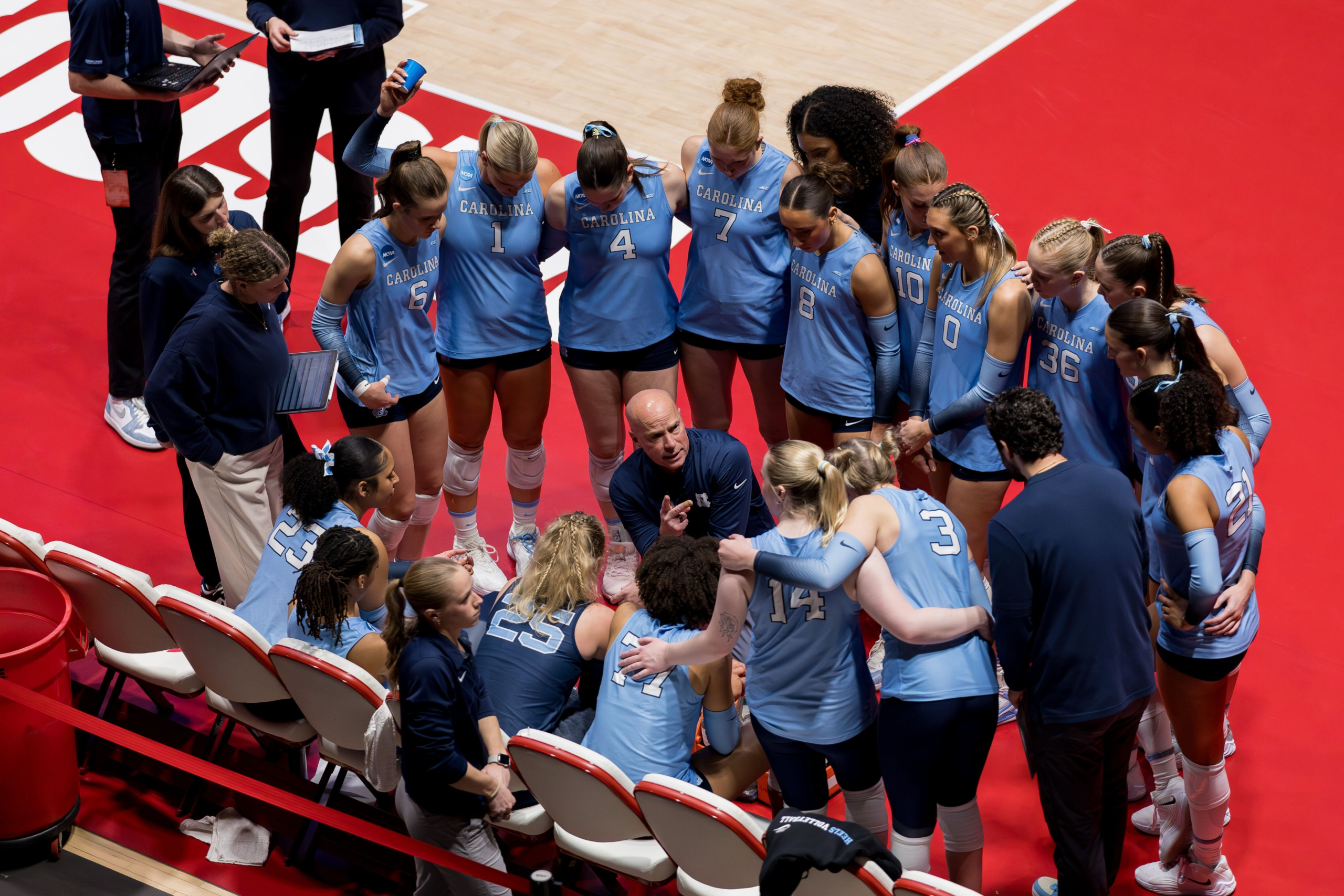As of last Thursday, managing attorney for the UNC Center for Civil Rights Mark Dorosin and his colleague Elizabeth Haddix were relieved of their positions by the university.
This move came ahead of schedule, as the two were expecting to maintain their positions until January 12, but after a letter from the State Bar claimed they should have never had the ability to provide legal services under the umbrella of the university in the first place, the law school determined that their terminations should be accelerated.
Despite the Bar’s claims, Dorosin feels that this move was uncalled for.
“I don’t think [the letter] justifies accelerating the date,” said Dorosin. “I think we were prepared to make sure there wouldn’t be any work on these cases on university time or with university resources, and I think [the university] felt like they just didn’t want to have to deal with that.”
Dorosin says the eight-week window they were originally given before their termination was valuable for them to provide a seamless transition for their clients.
“To have to compress that into a week before and around the Thanksgiving holiday was just very challenging and very confusing for clients,” said Dorosin.
On the bright side, the early termination forces Dorosin to turn his focus towards his new venture, the Julius L. Chambers Center for Civil Rights.
Dorosin wants the new center’s to be rooted in the same pillars that Chambers’ own Center for Civil Rights followed: direct advocacy, community-based research and public education and training law students to do social justice work.
Still, Dorosin says the education aspect may be more difficult now that their ties to the university have been cut.
“Certainly not being part of the law school will make the student training piece more challenging, but we are prepared for it,” said Dorosin. “Fortunately we’ve had so many students work with the center over the years, many of whom said they came to the law school because of the Center for Civil Rights, so I’m confident that we’ll be able to keep those relationships going.”
More information is available on the Julius L. Chambers Center for Civil Rights at their website.
Related Stories
‹
![]()
Attorneys Working to Continue Work of UNC Center for Civil RightsThe future of the UNC Center for Civil Rights remains uncertain after its power to act in litigation was stripped by the UNC System Board of Governors earlier this fall. Mark Dorosin, the center’s managing attorney, was effectively relieved of his position in the move. He technically will maintain that post until January 12. “In […]
![]()
First Victory for New Julius L. Chambers Center for Civil RightsThe predominately black community of Walnut Tree in Stokes County was annexed into the Town of Walnut Cove last month after a lawsuit alleging racial discrimination. The case was handled by the new Julius L. Chambers Center for Civil Rights, the non-profit legal center started by Mark Dorosin, who was fired from the UNC Center […]
![]()
Judge Blocks Civil Rights Lawyers, UNC Students Efforts to Intervene in Silent Sam DealAn Orange County judge will not let students intervene in a settlement that gave a Confederate heritage group money to preserve a monument that protesters tore down at North Carolina’s flagship public university. Judge Allen Baddour ruled that the University of North Carolina students represented by the Lawyers’ Committee for Civil Rights Under Law lacked […]
![]()
Chapel Hill Officials Affirm Support for UNC Center for Civil RightsAn advocacy group that also serves as a training vehicle for law students at UNC-Chapel Hill may come screeching to a halt by order of university system officials. That group is the UNC Center for Civil Rights, whose mission was summarized in comments made by Director Ted Shaw to the Chapel Hill Town Council on […]
![]()
UNC BOG to Hold Center for Civil Rights Public HearingThe future of the UNC Center for Civil Rights is unclear, after a proposal was filed to ban its lawyers from litigation. The Educational Planning, Policies and Programs committee of the UNC Board of Governors debated the proposal in March, and requested reports from both UNC and North Carolina Central University before making its decision. […]
![]()
Managing Attorney Weighs in on UNC Center for Civil Rights' FutureThe future of the UNC Center for Civil Rights is unclear after a proposal was filed to ban lawyers at the center from litigation. The Educational Planning, Policies and Programs Committee of the board debated the proposal earlier this month, and has requested reports from UNC and North Carolina Central University before making a decision. […]

UNC Women's Basketball Returns Home With Rout of Boston UniversityPlaying their first home game in two weeks, the Tar Heels dominated visiting Boston University at Carmichael Arena Sunday and cruised to an 82-40 win. 𝐓𝐄𝐀𝐌 Win.@WellsFargo x #GoHeels pic.twitter.com/8fYnPWpSpx — Carolina Women's Basketball (@uncwbb) December 7, 2025 After committing a season-high 20 turnovers in its loss at No. 2 Texas Thursday night, Carolina tied […]

UNC Volleyball's 2025 Season Ends vs. No. 3 Wisconsin in NCAA TournamentNo. 3 seed Wisconsin swept UNC in three sets in the second round of the NCAA Tournament Friday night in Madison. Carolina’s 2025 season is over. The Badgers dominated the first set and won 25-14, earning an early advantage in the match. But the Tar Heels stayed close in the second, cutting what had been […]

UNC Men's Basketball vs. Georgetown (2025): How to Watch, Cord-Cutting Options and Tip-Off TimeUNC will return home to the Smith Center for the first time in nearly three weeks when it hosts Georgetown Sunday evening. It’s the first meeting between the Tar Heels and Hoyas since the 2007 NCAA Tournament. If you aren’t attending the game in person, here’s how you can follow along at home: Broadcast Schedule […]

Chansky's Notebook: A Long Time ComingSomeone who was born the last time Carolina and Georgetown met in men's basketball would be a college freshman today.
›





